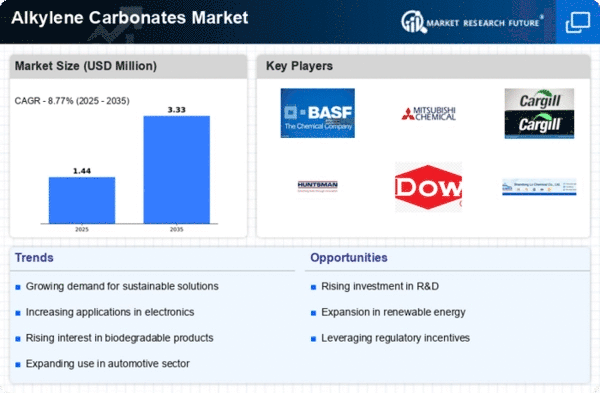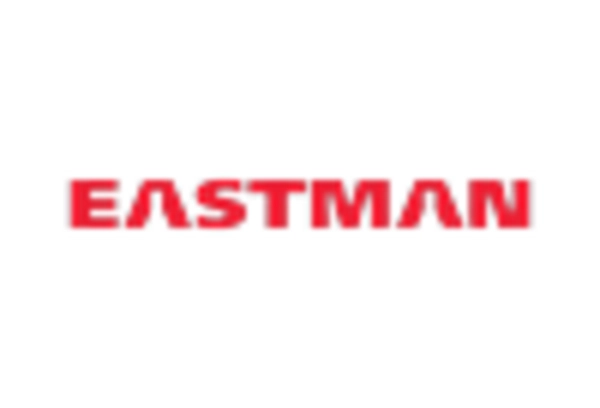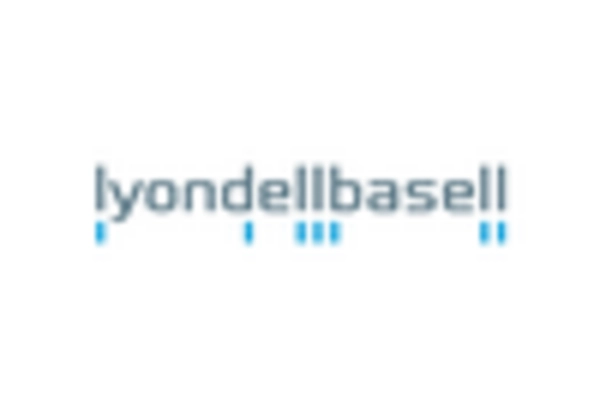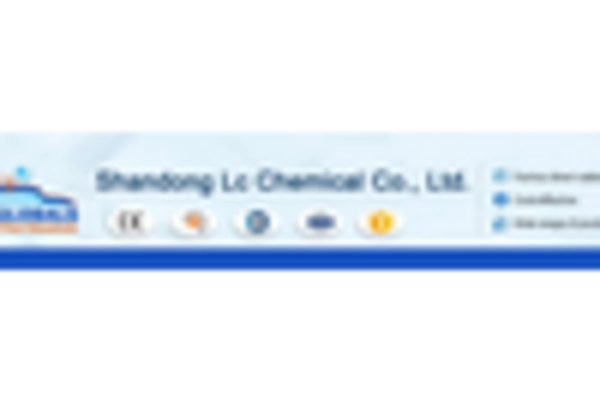Market Share
Alkylene Carbonates Market Share Analysis
In the dynamic and competitive landscape of the alkylene carbonates market, companies employ a variety of strategies to gain market share and establish their presence. One such strategy is differentiation, where companies focus on highlighting the unique properties or applications of their alkylene carbonate products to stand out from competitors. For example, some companies may emphasize the superior purity, environmental friendliness, or specific performance attributes of their alkylene carbonates, making them more appealing to customers in industries such as cosmetics, pharmaceuticals, or electronics. By emphasizing these distinguishing features, companies can attract customers seeking specialized solutions, thus carving out a niche within the market.
Cost leadership is another significant strategy, with companies striving to offer competitive pricing while maintaining profitability. Through efficient production processes, optimized supply chains, and economies of scale, these companies can provide alkylene carbonates at lower costs compared to their competitors. This approach appeals to price-sensitive customers and industries looking to minimize expenses without sacrificing product quality. By positioning themselves as cost leaders, companies can capture market share among budget-conscious buyers and solidify their presence in the market.
Additionally, companies may adopt a niche market strategy, targeting specialized segments or applications within the alkylene carbonates market. Instead of competing across the entire market spectrum, they focus their efforts on serving specific customer needs or addressing unique industry requirements. For example, a company might specialize in providing high-purity alkylene carbonates for use in lithium-ion battery electrolytes, where stringent quality standards are essential. By catering to niche markets, companies can develop expertise, build strong customer relationships, and establish themselves as leaders within their chosen segments.
Branding and marketing play a crucial role in market share positioning strategies within the alkylene carbonates market. Building a strong brand identity helps companies differentiate themselves, cultivate customer loyalty, and command premium pricing. Through targeted marketing campaigns, companies can raise awareness about their products, communicate key benefits, and influence consumer perceptions. Whether through digital platforms, industry events, or collaborations with key stakeholders, effective marketing efforts enhance visibility and drive demand for alkylene carbonates, ultimately contributing to market share expansion.
Strategic partnerships and collaborations also feature prominently in market share positioning strategies. By forming alliances with raw material suppliers, distributors, or end-users, companies can leverage complementary strengths and resources to gain a competitive edge. Collaborative ventures enable companies to access new markets, enhance product development capabilities, and stay abreast of emerging trends. Through strategic partnerships, companies can expand their market reach, capitalize on growth opportunities, and strengthen their position in the alkylene carbonates market.
Innovation serves as a cornerstone of market share positioning strategies in the alkylene carbonates market. Companies invest in research and development to introduce new formulations, improve existing processes, and address evolving customer needs. Whether it's developing alkylene carbonates with enhanced performance characteristics, exploring new applications in emerging industries, or enhancing environmental sustainability, innovation drives differentiation and stimulates market growth. Companies that prioritize innovation can capture market share by offering cutting-edge solutions that meet the evolving demands of customers and industries.
Customer experience and service quality are also critical components of market share positioning strategies. Providing excellent technical support, product customization options, and timely delivery fosters trust and loyalty among customers. Companies that prioritize customer satisfaction can differentiate themselves from competitors and build long-lasting relationships with clients. Positive experiences lead to repeat business, referrals, and positive word-of-mouth, ultimately contributing to market share expansion and sustained growth.



















Leave a Comment